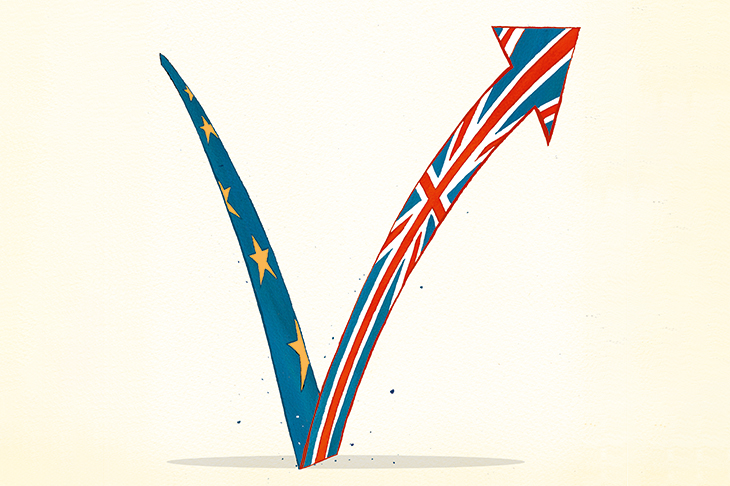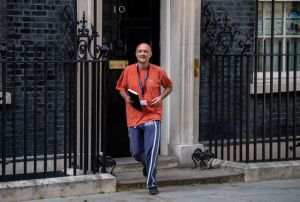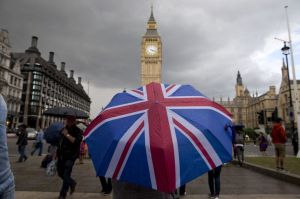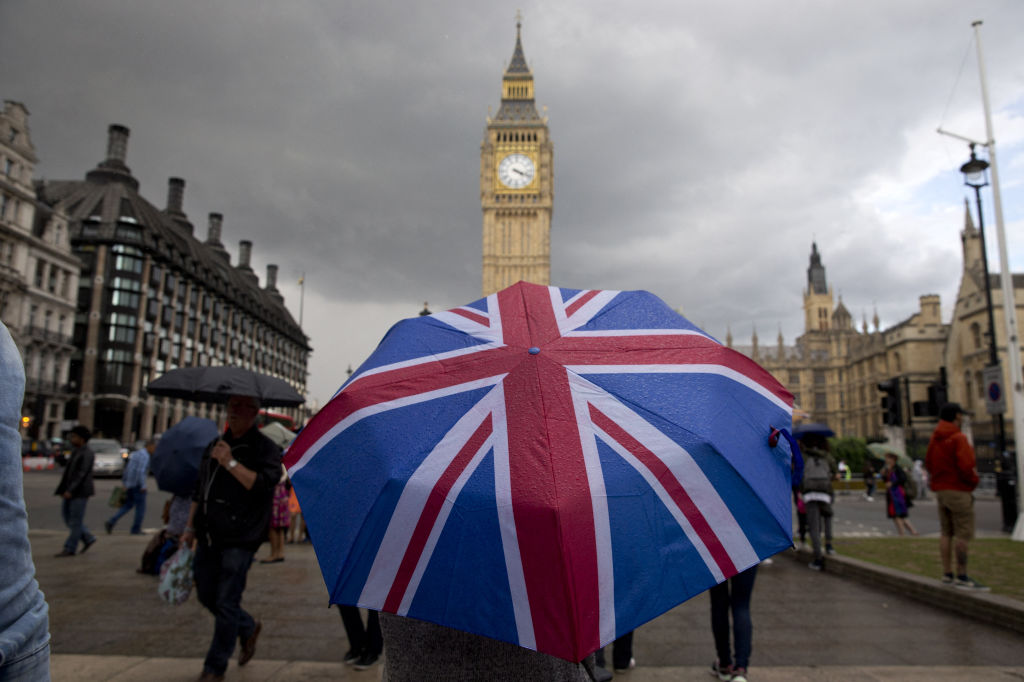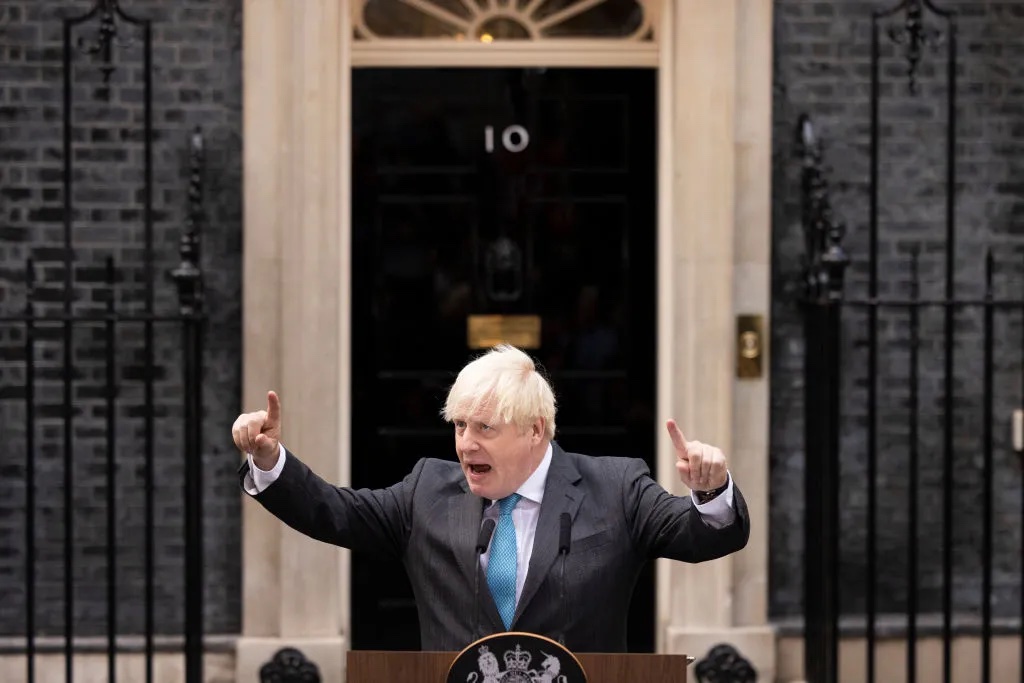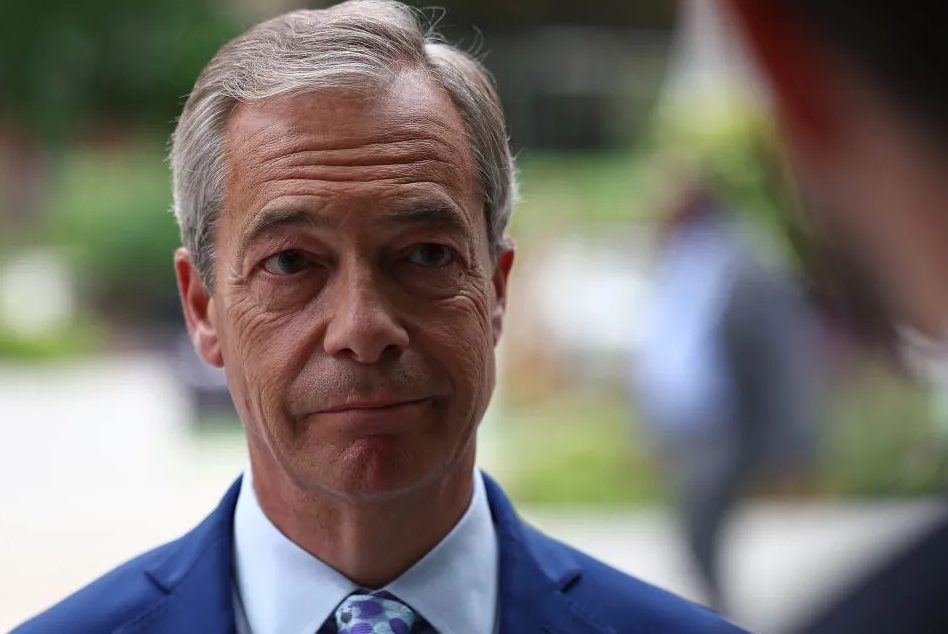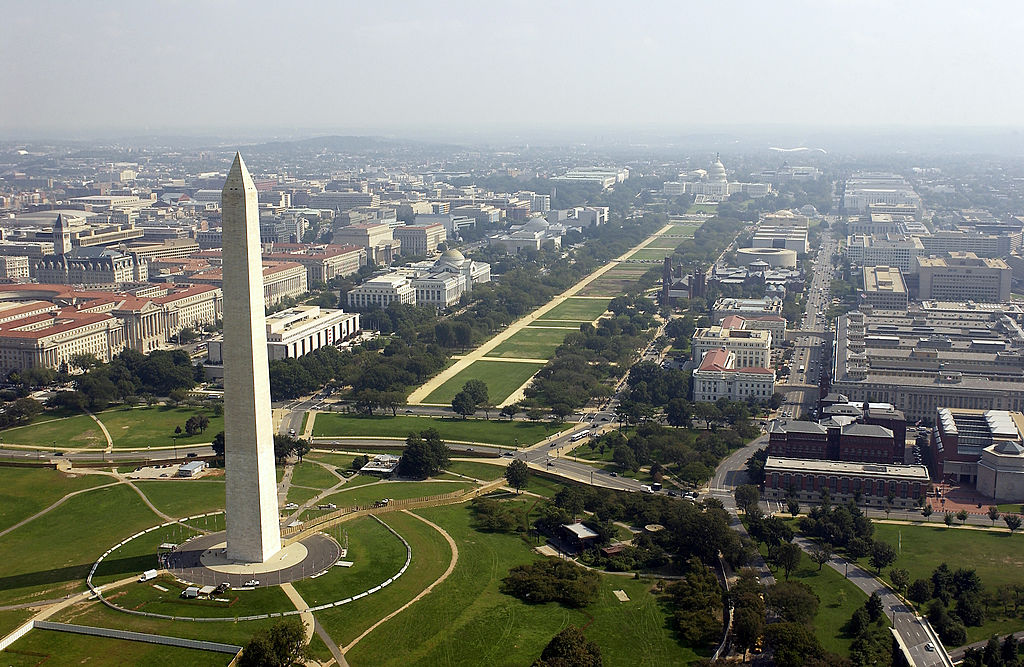This UK election campaign feels unreal. Commentators focus on spending plans and personal foibles, but what will make next week’s vote historic is something else, something so momentous that we draw back from discussing it seriously. The Lib Dems boast of Stopping Brexit, knowing that as things are now they will never have to try. Jeremy Corbyn pleads neutrality: the first leader not sure which side he was on since poor Henry VI in the Wars of the Roses. The Conservatives, whose hopes of office depend entirely on this issue, downplay its importance: ‘Get Brexit Done,’ ministers repeat, as if it were a tiresome distraction from real politics. Perhaps it is, if ‘real politics’ is only about mending potholes and recruiting nurses. But however much politicians, and perhaps voters, would prefer it all to go away, this election will change us and Europe, and have an impact on the wider international system.
First and most obviously, it will decide whether one of the world’s most famous and powerful states is still independent, or whether it has in reality become a subordinate component of a larger sovereign entity — a question still in doubt. Our independence is not primarily a matter of the details of European laws and regulations, however voluminous; or of the creation of a common citizenship with 27 other states; or even of the intended future development of EU control in still wider areas of government. It is primarily a matter of psychology. Britain voted in 2016 by a clear majority to be an independent state. If Boris Johnson fails to win a majority to ‘get Brexit done’, it will show that the British electorate has backed away from that decision, perhaps through fear of the consequences following a constant battering with anti-Brexit propaganda, perhaps through the coming of age of a new generation for whom independent national democracy appears to have little meaning. And that would be it. We would have given up ultimate control of our destiny because independence was too difficult.
At the moment, this seems unlikely to be the outcome. Despite a humiliating trail of mismanagement, the 2016 vote will be confirmed by an electorate angry at being despised. This means that most of those who govern us — or governed us — in politics, the media, the quangocracy, the business lobbies and the universities will have been defied. Despite their strenuous efforts, they will have lost. What we have seen emerge — as in a bloodless War of the Roses — is a divided elite. On one hand, a national elite that bases its legitimacy on identification with the nation and the majority will. On the other, a transnational elite — far bigger, more determined, and less respectful of our constitution than we could have imagined in 2016 — which draws authority and a sense of entitlement from its multiple links with the EU. Defeat of the transnational elite would be a kind of peaceful revolution; and like all revolutions, its outcome is unpredictable and for some unpleasant. Most, like the Abbé Siéyès, who said his great achievement during the French Revolution was to have survived, will accept the new reality and ‘move on’. Others, like Old Regime nobles who learned nothing and forgot nothing, will go into internal exile and do their best to make trouble.
The effect of a Johnson victory in this election will also be momentous for the EU, despite the whistling in the dark of Europhiles who affect indifference. Brexit will be the greatest setback, both material and psychological, to the vision of European integration since its beginning in the 1950s. Negative votes in referendums in France, the Netherlands, Ireland and Denmark, though they eroded the EU’s legitimacy, were sidestepped with little material consequence. Anti-EU elections in Greece and Italy were more brutally stamped on. Similar tactics were tried with Britain, with the connivance of the transnational elite: there was not even the offer of cosmetic concessions to save the electorate’s face. It was clearly the intention that domestic political chaos would nullify the referendum. But now it seems that for the first time a leading member state will actually leave the Union, and with a relatively strong and determined government.
There is no way the European Union can replace the loss of the UK. It will be permanently diminished. Economically, Britain is the equivalent of the 18 smaller members combined. Militarily, it is Europe’s only tier-one power: British troops are guarding the Baltic. Culturally, it is the most influential globally: the EU will still have to use the English language, and its brightest young people will still scramble to study and work here.
Yet paradoxically, in the short term Brexit has given a boost to federalism. The chaos and division it has provoked — played up beyond the point of caricature by the continental media — is a serious deterrent against any other nation’s exit. Even if Britain finally asserts its sovereignty, Eurosceptics elsewhere are lying low. More-over, Britain will no longer be the main barrier against a further centralization of power: federalists, led boldly by Emmanuel Macron, argue that the effectiveness and even survival of the EU demand financial and military integration — two fundamental prerogatives of sovereignty. They may well try to force an irresolute British government to accept an auxiliary position under an EU Defense Union as a condition for a Free Trade Agreement. But a great leap forward may be more than the EU’s shaky political structure can stand. Will Brexit be a new beginning for Europe, or the beginning of the end of its great power ambitions?
The same portentous question is often asked of the United Kingdom. But unless Brexit brings swift economic disaster — which disinterested analysis discounts — the Union will be strengthened. That is why Scottish, Welsh and Irish nationalists loathe Brexit, as only the EU offers them any hope, however fanciful, of emulating Luxembourg or Slovenia. A greater challenge to the Union, and to our very idea of ourselves, will be our future place in the world. Opponents of Brexit predict that it will diminish our status while they accuse its supporters of nostalgia for empire. In reality, Brexit signals our final embrace of a post-imperial role — an optimistic yet realistic decision.
When the American Secretary of State Dean Acheson quipped in 1962 that Britain had lost an empire but not found a role, most of the British political class, particularly its conservative elements, thought that Europe was the answer. Europe would provide a substitute for empire, a source of influence that would allow Britain to remain credible with the Americans and the Commonwealth — in short, to ‘punch above our weight’. This was always an elite view, never vouchsafed to the multitude, for whom empire was of no great importance. The French elite made a similar calculation, and they, unlike us, are sticking with it, perhaps because they have used the EU more single-mindedly to serve their own interests.
Britain’s haste to find a substitute empire was suffused with pessimism. First was a postwar fear of economic decline, which has simply proved false: British economic growth has matched that of the United States since the 1950s and exceeded that of most of Europe since the early 1980s. Second is the assumption that it was only possession of a large empire that had made Britain significant, and that without colonies it was a spent force. This still lingers: Jeremy Hunt, speaking of our duty to support the democratic rights of Hong Kong, began by saying: ‘Although we no longer have an empire…’ But the empire was not a source of strength: rather the opposite. It dispersed our resources, distorted our defenses, and was terribly vulnerable — Hong Kong under British administration is a perfect example. As an Edwardian official wrote at its heyday, the empire was like ‘a giant with gouty fingers and toes which cannot be approached without eliciting a scream’. We did not need a substitute empire or an economic crutch in the form of European integration in the 1960s. We still don’t. People now realize it.
The British have been adept at escaping empires, including their own: Adam Smith and Benjamin Franklin predicted that we would be part of a trans-Atlantic empire governed from New York, so the American Declaration of Independence in effect liberated Britain too. We made far less effort than the French to keep an empire after 1945. We seem to be about to escape again, this time from Mr Verhofstadt’s empire. We have long been used to relying on others for support and even to give us a sense of purpose: the empire, the Americans, the Europeans. Now that we have blackballed ourselves from the club, for the first time since the 17th century we may have to navigate our own course. We tend to put off thinking about essentials, and we shall probably vote on December 12 without having done so. But sooner or later we shall have to start thinking about what we have chosen, and what it will require of us.
This article was originally published in The Spectator’s UK magazine. Subscribe to the US edition here.



